Found 13 Results
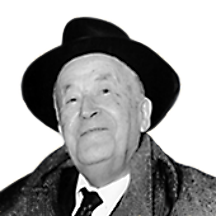
Agnon Shmuel Yossef
Shmuel Yossef Czaczkes was born in 1888 in the Jewish town of Buczacz in Eastern Galicia. His father, Mordehai Czaczkes, a fur merchant and a scholar, open to all prevailing streams of orthodox Jewish thought and even to the moderate Enlightenment, introduced his son to traditional Jewish culture. His mother was an enlightened Jew and familiarized him with European literature and culture.
Shmuel Yossef began writing in his youth. He once remarked, “I wrote a poem or a story on every piece of paper that I could find”. He published his first poem at the age of 16, and from then on, did not stop writing stories and poems in Hebrew and Yiddish.
At the age of 19, he went to Eretz Israel and settled in Jaffa where he became close to the new immigrants of the pioneer movement.
“Forsaken Wives”, his first story published in Eretz Israel, was enthusiastically received. Following its publication, Czaczkes adopted the pseudonym of Agnon based on its Hebrew title “Agunot “.
In 1913, Agnon went to Germany, where he married his wife Esther Marx, who came from an established family. During this period, he met Salman Schocken who later became his publisher. In 1924, Agnon’s house in Hamburg was burnt down, destroying his extensive library and manuscript collection . Then he returned to Eretz Israel and settled in Jerusalem, where he resumed his religious way of life. He continued to write until his death in 1970.
In 1966, Agnon was the first Hebrew writer to receive the Nobel Prize “for his profoundly characteristic narrative art with motifs from the life of the Jewish people.”
At the award ceremony, Agnon observed: “Due to a historical catastrophe… I was born in a town in the Diaspora… But I always felt that I was born in Jerusalem. I dreamed I was standing among the Levites in the Temple, singing the psalms of David, King of Israel”.
Agnon wrote six major novels portraying Jewish life in Galicia, Germany and Israel.
“The bridal Canopy”: An epic depicting 19th century Galician Jewry as seen through the eyes of a chassid, Reb Yudel.
“A single Story”: A love story set against the backdrop of Jewish life in Buczacz at the turn of the century.
“A Guest for the Night”: the story of the decline of Jewish life in the towns of Poland. (There are those who claim that, in this book, Agnon foresaw the coming of the Holocaust.
“Only Yesterday”: A book filled with color and shadows on the pioneers’ period in the Turkish Palestine.
“Shira”: magical images of Jerusalem during the 1940’s.
“In the Store of Mr. Lublin“: Life in Germany during World War I.
In the course of his life, Agnon published eight volumes of novels, novellas and short stories. Eight additional volumes were published posthumously.
Agnon’s writing has its own original and unique style – a wonderful blend of the language of the Mishna, medieval and chassidic literature and modern Hebrew.
Agnon was a master storyteller with a keen, and, at times, deadly, eye. His stories are gripping, surprising and shocking with a grotesque kind of humor – laughter mixed with tears. In his tales, it is often difficult to distinguish between reality and illusion, particularly in his work of fantasy “The Book of Deeds“.
In a speech before the Nobel Prize ceremony, Agnon declared: “Who were my teachers of poetry and literature? Who inspired me? Every man, woman and child whom I have ever met, both Jew and non-Jew; conversations with people, the stories of their lives engraved in my heart and flow from my pen”.
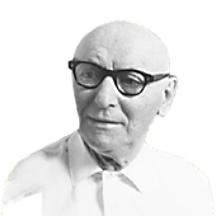
Bashevis-Singer Isaac
Isaac Bashevis Singer was born in 1904 into a rabbinic family in the town of Radzymin, Poland. He learned in a “cheder” and “yeshiva” before studying in the “Tachkemoni” seminar in Warsaw. From 1923 until 1933, he worked as a translator and proofreader for the Polish Yiddish periodical, “Literarishe Bleter”.
In 1935, Singer emigrated to the United States where he wrote literary criticism, essays, books and stories and made a name for himself in Yiddish literary circles. Among his most famous works are “The Family Moskat” and “The Magician of Lublin”.
Isaac Bashevis Singer was awarded the Nobel Prize for literature in 1978 “for his impassioned narrative art, which, with roots in a Polish Jewish cultural tradition, brings universal human conditions to life.”
In his books, Bashevis-Singer portrayed the life of Jews in Poland after the 1648-49 massacres and Jewish life in Warsaw before the holocaust. Some of his books and stories have been adapted for films and television.
Bashevis-Singer was a master storyteller, who drew his readers into a magical world of ghosts and spirits, temptations and desires, dreams and secret passions. He portrayed the provocative and unconventional aspects of life in the small Jewish town, the “shtettel”.
When he was asked why he continued to write in a so-called dead language, he replied, “I am sure that millions of Yiddish-speaking corpses will rise from their graves one day, and their first question will be: Is there any new book in Yiddish to read?
Isaac Bashevis Singer passed away in 1991.
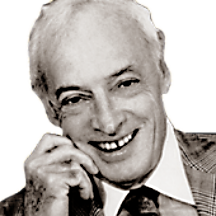
Bellow Saul
Saul Bellow was born in 1915 in Lachine, Quebec , Canada. At the age of nine, he moved with his parents to Chicago, there he studied sociology and anthropology. He lectured on English literature in Princeton and New-York Universities and was a professor at the University of Minnesota.
Saul Bellow received the 1976 Nobel prize in literature “for the human understanding and subtle analysis of contemporary culture that are combined in his work.” The Nobel committee cited his book Seize the Day published in 1956, as one of the classical creations of our time.
Bellow’s first book, Dangling Man, was written in 1944. Since then he published many more, among them the Adventures of Augie March, Herzog, and Seize the Day.
Saul Bellow is one of the most important contemporary American writers. His literary contribution was rewarded in many grants and honors, among them the National Book Award as well as the prestigious Pulitzer prize.
In his novels, he has created a unique and original American style that ranges from storytelling in everyday language to complex intellectual analysis.
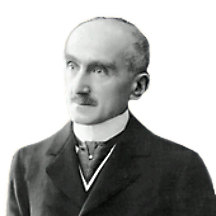
Bergson Henri
Henri Bergson was born in Paris in 1859. At the age of thirty he published his work on the meaning of time and freedom and became a famous and much admired philosopher.
Henri Bergson was awarded the 1927 Nobel prize for literature “in recognition of his rich and vitalizing ideas and brilliant skill with which they have been presented”.
In his teachings, he made a distinction between the conceptual notion of the external reality and the immediate intuitive consciousness that is reveal to us from within, which for him was the only means of understanding life and time.
Despite his attraction to Catholicism, he refused to be baptized and to cut his ties with the fate of the Jewish people at the time of persecutions; on the eve of his death, he insisted on registering as a Jew at Paris police station.
Henri Bergson died in 1941.
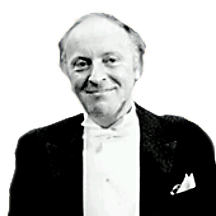
Brodsky Joseph
Joseph Brodsky was born in Leningrad in 1940. Although he was considered one of the most promising soviet poets, he was not allowed to publish his poems until 1970 and had to do so underground.
In 1972, Brodsky immigrated to the United States of America and in 1987, he received the Nobel prize in literature “for his all-embracing authorship, which is imbued with clarity of thought and poetic intensity.”
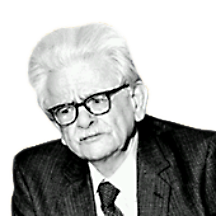
Canetti Elias
Elias Canetti was born in 1905 in Bulgaria. In 1981 he received the Nobel prize in literature, “for his writings, which are marked by a broad outlook, a wealth of ideas and artistic power”.
Canetti’s writings describe Europe in the shades of the World Wars. The most outstanding among them are the sociological essay “Crowd and Power” and his autobiographic books.
Elias Canetti passed away in 1994.
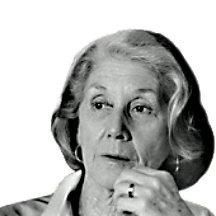
Gordimer Nadine
Nadine Gordimer was born in South-Africa in 1923.
Her work, criticizing the south-African racial regime, became appreciated worldwide although it could not be published in her own country.
In 1991 Gordimer received the Nobel prize in literature. The Nobel committee wrote in its decision that, “through her magnificent epic writing, she has been of great benefit to humanity.
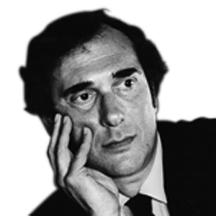
Harold Pinter
Harold Pinter’s ancestors came to England from eastern Europe, possibly descendants of the Portuguese Pinto family. He was born in East London in 1930 and was very talented as a child. He was a gifted runner, a promising cricket player and a curious student who admired English and Russian literature.
In 1948 he joined the theater academy of London and played in hundreds of plays. At that period he also directed and played in radio and television programs. However he was best known for his play writing, producing witty dialogues, absurd plots and unique style, in plays such as The Birthday Party, The Room and Betrayal – plays that left the audience speechless. In 2005 his outstanding talent was recognized and he was awarded the literature Nobel Prize, joining the Jewish literary hall of fame.
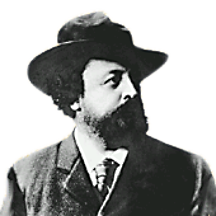
Heyse Paul
Paul Heyse was born in Berlin in 1830.
He received the 1910 Nobel prize in literature, “As a tribute to his consummate artistry, permeated with idealism, which he has demonstrated during his long productive career as a lyric poet, dramatist, novelist and writer of world-renowned short stories”.
Paul Heyse passed away in 1914.
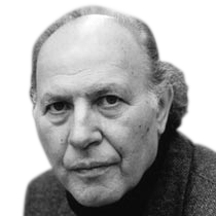
Imre Kertész
Imre Kertész was born in 1929 – the same year Hitler made Himmler chief of the S.S.; by that year, as many as 100,000 members joined the Nazi party; and in that year, two Jewish authors were born, who shall be the main recorders of one of humanity’s greatest atrocities.
One was a brilliant girl called Anna Frank, who perished 16 years later, leaving us a fascinating diary which became a tragic youth biography of an entire nation.
The other one was Imre Kertész, who survived the Holocaust and became a world known author. In 2002 he was awarded the Nobel prize in literature.
“Whenever I start writing, I think of Auschwitz”, he said. His two well known books “Fatelessness” and “Fiasco” depict the daily cursed routine of prisoners in that hellish place. Paradoxically, it was in Auschwitz that Kertész grasped the profound meaning of concepts such as happiness – “in Auschwitz I have experienced moments of the most extreme happiness, such as a ten minutes break from excruciating indescribable labor; freedom – “survival becomes the greatest freedom”; religion – “hell does not exist. I should know – I have been there”.
Kertész, who was not able to set free from Auschwitz’s hell, passed away in 2016.
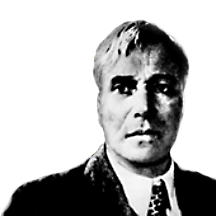
Pasternak Boris
Boris Pasternak was born in Moscow in 1890 and became a famous writer, poet and translator. However, his literary work, particularly the epic novel, “Dr. Zhivago”, earned him a reputation for being disloyal to the Soviet regime. His books were banned within the Soviet Union.
Nevertheless, Boris Pasternak received worldwide praise and recognition for his writing, and in 1958, he was awarded the Nobel Prize for “his important achievement both in contemporary lyrical poetry and in the field of the great Russian epic tradition.” Leaders of the Soviet regime forced Pasternak to refuse the Prize, and two years later, in 1960, he passed away.
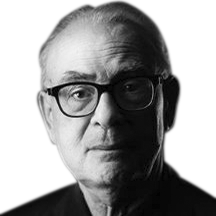
Patrick Modiano
When memories die out and buried in the soil of forgetfulness – there comes Patrick Modiano from the darkness, a shovel and a lantern in his hands, and rescues them from the abyss of death.
Jewish-French author Patrick Modiano, winner of the Nobel Prize in Literature in 2014 is referred to as “the archeologist of memories”. His entire corpus of works is about the desperate attempt to try and capture particles of memory, elusive fractions – and bring them alive again.
A restless, strict archivist, Patrick Modiano picks, sorts and organizes his memories. Names of streets, quarters, alleys and anonymous by passers – are the very foundation of Modiano’s art.
He was born in Paris, on November 30 1945. His father was a questionable businessman who walked out on him when he was 5 years old. His mother, “a pretty dreamy woman” as he described her, was unable to raise him and sent him to boarding schools.
When he studies in Henri–IV in Paris, his mother hired the author and matematician Raymond Queneau, who was a friend of hers, as Patrick’s tutor. Queneau encouraged the boy’s literary aspirations and had his first manuscript, La Place de l’étoile, published in 1968.
The detailed review of the city of Paris is an inherent characteristic of each and every one of Modiano’s 30 books, like a tour guide reporting on a city’s curiosities. However in a much deeper level, these specifics alows an illusion of certainty, a grasp onto a concreted reality that helps the author cope with alienation and the pursue of identity.
His stories change their genre constantly: detective fiction, romantic Paris, thriller, and in some cases extremely accurate descriptions, such as the shape of the siluette of the woman wearing a blue dress at a specific angle the sun shines through the windows of the LA CONDA CAFÉ.
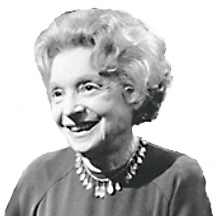
Sachs Nelly
Nelly Sachs was born in Berlin in 1891. Together with her mother, she managed to flee Nazi Germany to Sweden before the Second World War. The rest of her family perished in the German concentration camps.
In 1966, Nelly Sachs was awarded the Nobel prize in literature, together with Shmuel-Yosef Agnon, “For her outstanding lyrical and dramatic writing, which interprets Israel’s destiny with touching strength.”
Nelly Sachs died in Stockholm in 1970.

free text
Select a Nobel category:
- Chemistry
- Economics
- Literature
- Medicine
- Peace
- Physics
Select first letter of winner's name:
- A
- B
- C
- D
- E
- F
- G
- H
- I
- J
- K
- L
- M
- N
- O
- P
- Q
- R
- S
- T
- U
- V
- W
- X
- Y
- Z
Search Results
Found 0 Results
No search results

region on map
